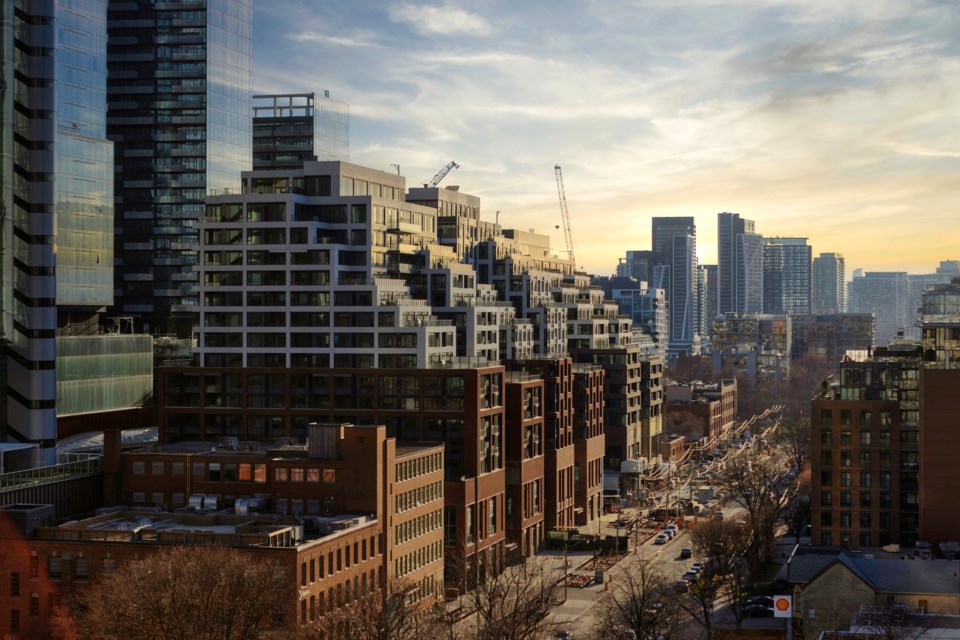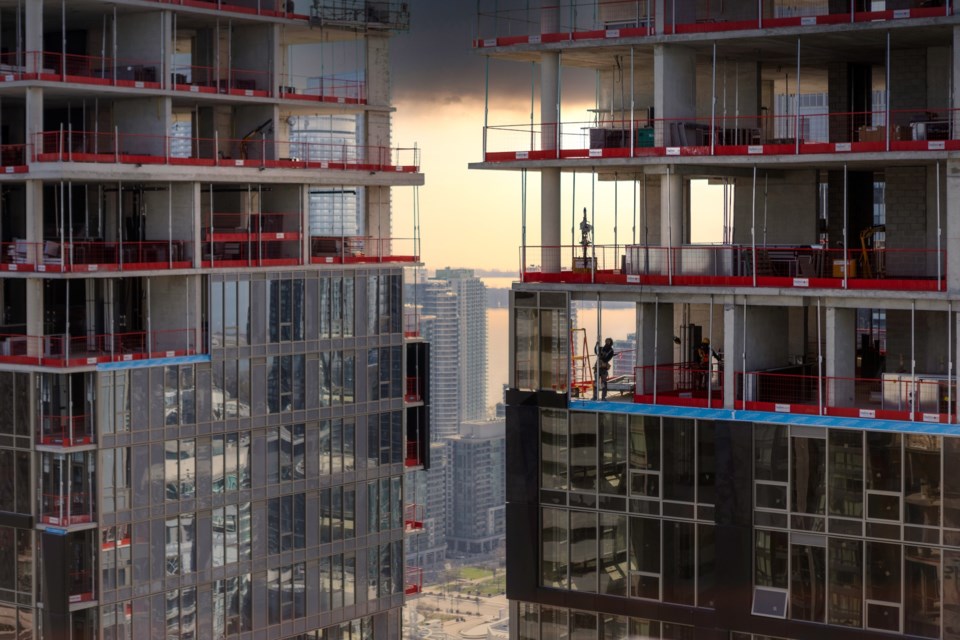This story is part of a partnership between The Green Line and The Trillium for readers who care deeply about Toronto and the people, policies, and politics at play. We’re pairing The Green Line’s unique community-driven, solutions-oriented journalism with The Trillium’s signature insider coverage of Ontario politics and policy to dig deep into the city’s problems and connect you with the plans the Toronto mayoral candidates are proposing to fix them.
When Toronto voters make their choice this month, the biggest factor for many will be who can best help them afford a roof over their head.
Whoever wins will have to deal with the provincial government’s activity on the file, which has been contentious for cities. Toronto is no exception.
The issue is constantly top-of-mind for the Tories, who aim to transform the province into a manufacturing powerhouse and need hundreds of thousands of immigrants to do so, and to fill gaping labour shortages in most sectors of the economy. If they have nowhere to live, the PC economic plan crumbles.
Premier Doug Ford’s strategy so far is build, build, build. If you flood the market with enough houses, eventually they’ll become affordable, the thinking goes.
“We need to do everything we can to reduce delays and help ensure that new homes get built as quickly as possible,” Municipal Affairs and Housing Minister Steve Clark said in the legislature last year.
It’s an approach critics consider code for single-family homes and sprawl. “Everyone’s dream is to have a little white picket fence,” Ford has said.
While most of the attention on the government’s housing plan has focused on the controversial decision to open up the Greenbelt and expand municipalities’ boundaries into prime farmland, Toronto’s geography doesn’t allow it to sprawl outwards. Here, the government is pushing in many ways for greater density and more affordable homes, particularly in Toronto.
The provincial housing target is 1.5 million new homes by 2031, with 285,000, or 19 per cent of them, in Toronto.
It’s intensifying around bus and rail hubs with “transit-oriented communities” (TOCs) and ministerial zoning orders (MZOs), removing local height restrictions, axing development charges for affordable housing, and upping the rhetoric against NIMBYs (not-in-my-backyard-ers), following the federal Conservatives’ lead.
TOCs, dense communities build on top of and around transit stations, are beloved by progressive urbanist types, who see car-less mixed-use neighbourhoods as the future. They’re despised by some planners who have seen their plans go out the window, and, well, NIMBYs.
In Toronto alone, there are TOCs planned in Corktown, the East Harbour, Exhibition Place, Gerrard and Carlaw, King and Bathurst, and Queen and Spadina.
But the regulations are vague, and some experts would like to see more detail. Mike Moffatt, the senior director of the Smart Prosperity Institute and Ontario Twitter’s unofficial housing czar, noted on The Trill podcast that in New Zealand allows the development of six-storey apartments around transit stations.
“If we had something like that in Ontario, that could be quite transformative,” he said.

MZOs are another controversial ace up the government’s sleeve. They let the province override local governments and bypass consultations to build stuff. Many of the orders have benefited developers with PC ties.
Ford has deployed dozens in the city of Toronto alone, for things like building modular non-market housing, expanding Sunnybrook Health Sciences Center’s COVID lab, and cutting regulations for the CafeTO program.
Strong mayor powers are also ostensibly to allow mayors to get housing through NIMBY councils, though Ford initially said, “I don’t remember about affordable housing” when asked what the powers are for.
The mayoral candidates have used the powers as a wedge issue, pledging to either uphold democracy by rejecting them (Olivia Chow, Josh Matlow and Mitzie Hunter) or plow through bureaucracy to deliver results (Mark Saunders, Brad Bradford). Ana Bailao has said she wouldn’t overrule council’s wishes, but may use the powers to set the budget and appoint senior staff members.
Many civic leaders have not been happy with much of the government’s housing plan, specifically the parts that reduce development charges on affordable housing. The PCs want to make it more attractive for builders to take on those projects, but municipalities say they rely on the fees to pay for the infrastructure those buildings demand.
Some municipalities have responded by threatening increases to regular development charges to offset the bill’s impact.
Clark has promised to audit six major cities affected by the bill to see how it will affect their finances. He has pledged to make them “whole” if they’ll face undue stress, though he’s avoided questions on what exactly that would look like — and how much he’s prepared to pay.
Some Indigenous groups have also pushed back. The Chiefs of Ontario want the whole thing repealed, saying they weren’t consulted at all, despite efforts to get the government to talk to them. Clark admitted there was no Indigenous consultation in late November last year.
The Ford government’s housing strategy is controversial. And it’s objectively bolder than anything seen at a provincial level in many years.
But is it enough?
Well, no. Housing Minister Steve Clark himself has said there’s more work to be done and promised to use “all measures possible” to get to 1.5 million homes.
The latest legislation, Bill 97, was his third major housing bill in 13 months. On The Trill, Smart Prosperity researcher and former London deputy mayor Jesse Helmer said the “drip, drip, drip” of announcements might be hurting the PCs politically.
“I do wonder if the government’s causing some problems when it comes to this constant tinkering of the regulatory environment, and maybe we would be better off if we just ripped the band-aid off, made all the changes we needed at once, and went from there,” Moffatt, his colleague, added.
Clark would have a strong ally in a Mayor Mark Saunders or Brad Bradford, and to some extent Ana Bailao, who have all promised to streamline regulations for developers to get more housing built.
If Olivia Chow, Josh Matlow or Mitzie Hunter take the helm, it remains to be seen whether the Ford government would encourage their plans to get the government back into the building game.
You can read more about the mayoral candidate’s plans for housing in an article by our partner, The Green Line, here.




